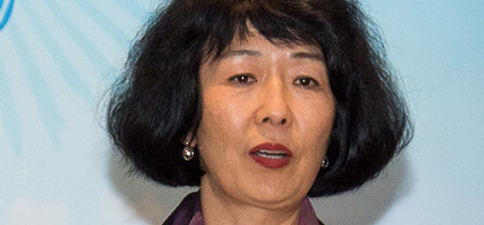Haybina Hao provides insight on the finer nuances of the inbound China market.
Haybina Hao (pictured above) joined the National Tour Association in May 2010 to direct the association’s international expansion, as it redefined itself for the global economy. As a native of China, Hao brought indispensable insight to NTA with her understanding of the Chinese tourism market, which is the strongest new international market for NTA.
Inbound tourism from China to the U.S. grew from 320,000 Chinese visitors to 1.8 million by 2013. The U.S. Travel Association estimates the number will grow to 3.1 million by 2019, channeling $21.1 billion into the U.S. economy.
The Chinese government appointed NTA to oversee tour operators handling inbound travel from China in order to work toward ensuring that its citizens would be safe and well taken care of. Out of 700 NTA tour operator members, 368 now sell international travel, and 210 of them pay an additional fee to be part of NTA’s China inbound program.
We caught up with Haybina Hao – who will leave NTA in January – at the Third Annual Sichuan Travel Expo in Leshan, China.
How important is the pact between NTA and the Chinese government?
We have had this China inbound program in place for nearly eight years. We took the step with courage to move into this market and we invested our resources. After eight years our members have seen the program grow to include 210 companies. And in addition, many of the supplier members came to us for help with emerging markets because of our expertise. By working with the Chinese market, the entire NTA membership benefits.
What role do travel agents play in the inbound program?
The tour operators are very capable of directly connecting with consumers. But many companies choose not to. They’d rather work with travel agents who have their own channel to connect with consumers. Travel agents are a very important segment of the travel industry – one that tour operators cannot ignore. They play a unique role. They are doing much of the work that many of the operators choose not to do. By working with travel agents many operators expand their market reach.
NTA started inviting travel agents to its convention several years ago. How did that come about?
Each time we make a change it’s because we hear from our members. We always make changes based on members’ feedback. Our membership saw the advantage of working with travel agents side by side.
Is the most immediate avenue into the China market for U.S. travel agents through U.S. outbound travel?
That is true. Out of the 210 tour operators that are in our inbound China program, at least 20 to 30 are also doing outbound China programs.
Is the outbound business also benefiting from NTA’s growing expertise in the market?
Yes. For the 210 tour operators registered with the program it is not just a simple registration. It really requires us to provide a service. Whatever questions and challenges they have we need to be able to help them with, and overall we need to educate them. We are responding to their individual needs – and it does require a lot of attention.
NTA also plays an active role with outbound travel markets, as we work with destination marketing organizations to provide familiarization trips for tour operators to help them establish tours. This is the third time we’ve brought a group of tour operators to the Sichuan Travel Expo. We did another trip to the Hubei province. We’ve also taken groups to Ethiopia and Scotland.
Where do travel agents fit into the equation?
With outbound business to China, NTA operators need help to put together groups. The tour operators’ strength is at the destination. The travel agents have their existing clientele and their reach into the marketplace. If our Chinese operators can work with travel agents – that’s a wonderful combination.
It is also important for the industry to be aware that nobody can accurately predict the China market. The China market is culturally very diverse and totally different from the typical North American culture. It’s politically very sensitive and you need to always be politically correct. So it’s a very challenging market.
We see different trends. Now we see the online travel agencies (OTAs) have started marching into China and establishing branch offices. We don’t know how the OTAs and the traditional travel companies will work together. Many things remain to be seen. That’s why it’s important for the industry to work together. Each of us has our own strengths, advantages and knowledge base.
How can you walk away from this market? You can’t afford to. NTA has a lot of advantages it can share with the travel industry. So let’s work together and figure out this market.
